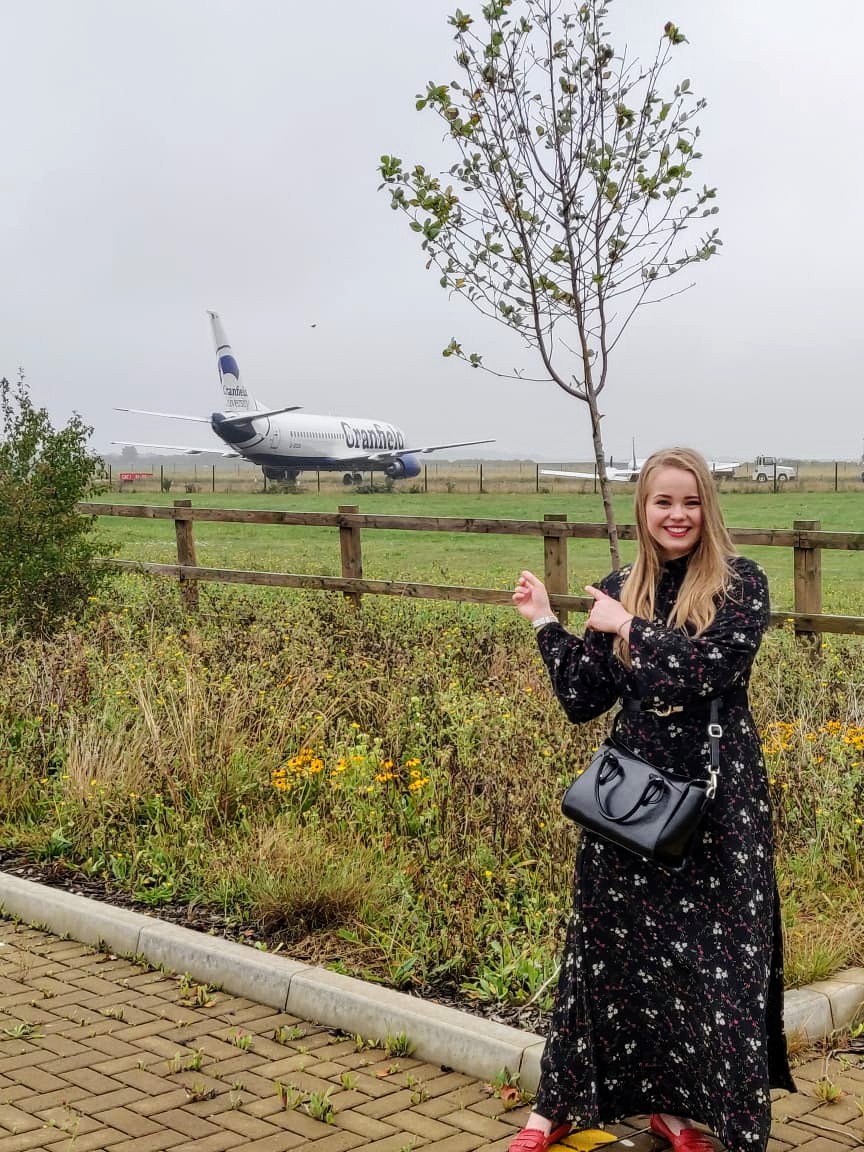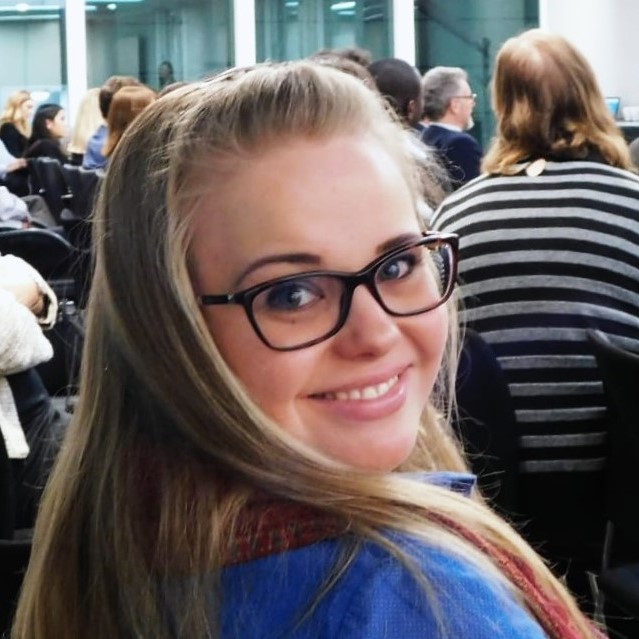From digestion to combustion – how my nutrition degree led me to study Chemical Engineering at Cranfield University.
24/09/2020

How I ended up at Cranfield is by no means a linear path. Upon graduating from a high school in the German countryside, I did what most of us kids did and went to law school. At the University of Bayreuth (Bavaria, Germany), I studied one semester of law and economics, before the institution and I decided to part ways – you see where this is going. Not a student, and unguided, I really had no idea what to do next, so I did the obvious thing of moving to the Middle East for a year. I first volunteered in both a special needs school and workshop in Jerusalem. That was quite the year, and in addition to a massive sunburn, I left Israel with increased patience and gratitude for my lot, as well as some Hebrew and Arabic, ya Habibi.
Switching from falafel to fish ‘n’ chips, I moved to the UK and enrolled on a life sciences foundation year at the University of Westminster. Although I was utter rubbish at sciences at school, it now seemed to be my thing, and I made the Dean’s List for outstanding performance, which would repeat for the years to come. My life-long interest in the impact lifestyle has on health lead me to enrol on Westminster’s Human Nutrition BSc Honours program. Nutrition at degree level is mostly applied biochemistry, which, in case you are unsure what biochemistry is, is the illegitimate child of a drunken party encounter of chemistry and biology. It governs the organic reactions in animals, for example, the minute molecular processes of how your midnight doughnut binge is turned into jiggly love handles. Or in other words, how one form of energy is converted to another. This realisation was rather awe-inspiring and led me to think of what these reactions would look like if they were upscaled.
At this point, you need to know that I am also a massive car enthusiast. While I disapprove of the environmental implications of petrol cars, I am absolutely fascinated by the workings of internal combustion (the magic that happens in your car engine). Just like in digestion, it is a carefully controlled reaction that converts one form of energy to another and thereby propels your car.
This got me thinking; what if there was a way of decreasing the car’s carbon footprint while maintaining driver experience? The product of this thought was my BSc thesis in renewable liquid fuel under the supervision of the brilliant biotechnician and lecturer Dr Godfrey Kyazze. I experimented how best to release sugar molecules from agricultural waste which are then fermented to give bioethanol; a substance that is already added to conventional petrol to reduce its CO2 emissions.

The experiment was much fun but marked only the beginning. I wanted more. I wanted to be part of the energy transition, leading all of us to a sustainable and energy-safe future. And this is where Cranfield enters the stage. I was lucky enough to speak to Cranfield’s Dr Gill Drew and Dr Peter Clough during an open day, who helped me identify that my talents and ambitions would be best cultivated in chemical engineering. They told me how Cranfield is the right place for someone like me, and that I should apply for its Advanced Chemical Engineering Master’s. That’s precisely what I did. And since I like talking a lot as you may have noticed, I told my ideas about a sustainable future to Cranfield’s School of Water, Energy and Environment. In turn, I was awarded the prestigious NetZero scholarship. I can hardly begin to express my gratitude for being at an institution where my vision is shared, encouraged, and supported.

But why am I telling you all of this? It’s because you will not find people with straightforward stories at Cranfield. Everyone you will meet on campus has a story to tell, and it will most likely not be a linear one. Because Cranfield is where you will find the people that were the odd ones out; the ones with ideas that most people told them were stupid because they challenged the status quo. You will find these people here, changing the way we think and see the world. The ones that will make a difference not just for themselves, but for all of us. We think out of the box; we are Cranfield!

Categories & Tags:
Leave a comment on this post:
You might also like…
Keren Tuv: My Cranfield experience studying Renewable Energy
Hello, my name is Keren, I am from London, UK, and I am studying Renewable Energy MSc. My journey to discovering Cranfield University began when I first decided to return to academia to pursue ...
3D Metal Manufacturing in space: A look into the future
David Rico Sierra, Research Fellow in Additive Manufacturing, was recently involved in an exciting project to manufacture parts using 3D printers in space. Here he reflects on his time working with Airbus in Toulouse… ...
A Legacy of Courage: From India to Britain, Three Generations Find Their Home
My story begins with my grandfather, who plucked up the courage to travel aboard at the age of 22 and start a new life in the UK. I don’t think he would have thought that ...
Cranfield to JLR: mastering mechatronics for a dream career
My name is Jerin Tom, and in 2023 I graduated from Cranfield with an MSc in Automotive Mechatronics. Originally from India, I've always been fascinated by the world of automobiles. Why Cranfield and the ...
Bringing the vision of advanced air mobility closer to reality
Experts at Cranfield University led by Professor Antonios Tsourdos, Head of the Autonomous and Cyber-Physical Systems Centre, are part of the Air Mobility Ecosystem Consortium (AMEC), which aims to demonstrate the commercial and operational ...
Using grey literature in your research: A short guide
As you research and write your thesis, you might come across, or be looking for, ‘grey literature’. This is quite simply material that is either unpublished, or published but not in a commercial form. Types ...






